stormbornedivinity
105 posts
•Laurel•♒• Aspiring witch with a calling to divination. Just starting my journey as a Hellenistic Polytheist.
Don't wanna be here? Send us removal request.
Text
What to put in your hellenic journal and why it helps
Building a kharis with gods using a religious journal is really helpful. It helped me keep my information and my thoughts related to the Gods organized. It can also help beginners if they are uncomfortable reciting hymns out loud.
What could be put inside it:
Every day write one delphic maxim and write how you interpret it or what you think about it
Make a shopping list for your altar and offerings
Compose prayers
Hymns/ prayers to your patrons and Hestia, Nyx, Helios, Hypnos
Write something as if you are conversating with the Gods.
Important information on deities
Favorite offerings, incenses, and libations of the Gods
Important Callendar events, festivals, and key info on celebration
Quotes from the most famous books of Gods that you relate to or want to remember
Instructions on composing prayers
What afterlife means in Hellenismos
What defines hubris, agos and miasma
7 pillars of Hellenismos and their meaning
Do some drawings for the Gods as a devotional act
Include your personal experiences with the divine and how it affected you
Write down the signs you saw during the week
You can also decorate it with the images of Gods
Delphic Maxims:
https://www.tumblr.com/bluemorfedbutterfly/746793310790828032/delphic-maxims-pt1-the-delphic-maxims-are-a?source=share
3K notes
·
View notes
Text
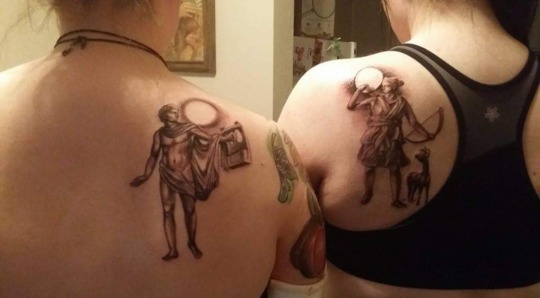
My twin sister and I got these tattoos together forever ago. She's the moon to my sun!
6 notes
·
View notes
Text

WIP First time wood burning!
Making devotional art of Father Zeus!
Original art @b--art
#helpol#hellenic polytheism#hellenic polythiest#hellenic pagan#hellenic paganism#zeus#zeus worship#zeus deity
287 notes
·
View notes
Text


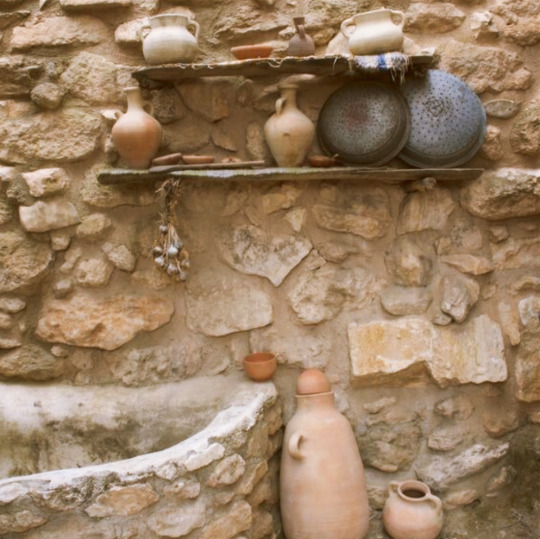

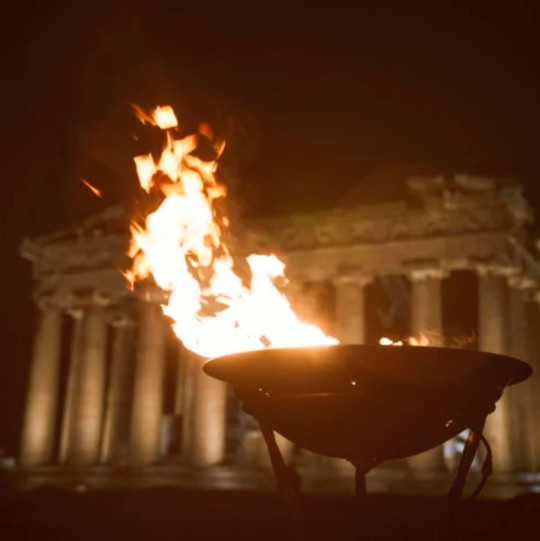

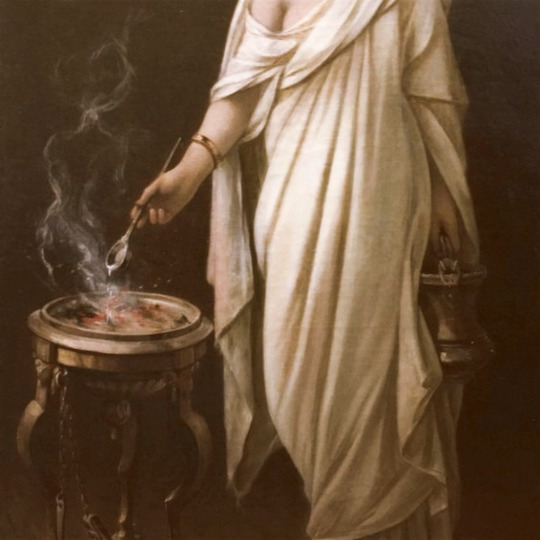


devotional moodboard for Hestia, goddess of the hearth
In thee the Gods have fixed their dwelling place; strong, stable basis of the mortal race. Eternal, much formed, ever florid queen, laughing and blessed, and of lovely mien.
569 notes
·
View notes
Text

@tarot-on-a-technicality For Hera — the regions of Argos, Samos, Magna Greca, Lesbos, etc will definitely want to be your focus of study. Understanding Greek Religion <— has a section on Hera and the whole mythic vers cultic Hera
Ancient Greek Cults (also has a section on Hera)
Religion and Society in Ancient Thessaly (Hera and her unique relationship with Thessaly & Themis)
@thegrapeandthefig should have more information on hera too!
271 notes
·
View notes
Text
My Drive Resource Libraries
Feel free to download, share, etc. I found most everything through open access journals, JSTOR, Anna's Archive, sci-hub, pdfs shared on other sns, etc.
Greek Polytheism & Hellenism
Roman & Italic Polytheism
Gaulish & Gallo-Roman Polytheism
Celtiberian Polytheism
618 notes
·
View notes
Text









Digital offering for Lady Hera
333 notes
·
View notes
Text
Hestia
Hestia’s posture is impeccable.
She is neither tall nor short - and round in figure.
Her hips are wide - perfect for holding the children that she never birthed, but cares for anyway.
Her belly is round, from good food and a good family - and it bounces slightly when she laughs.
She has a mothers face, and a mothers hands, and auburn hair that falls in curls.
She wears dresses in muted oranges and reds, or browns - and her apron is off-white.
She hums when she cooks in the kitchen and grows her own herbs in the back garden.
She keeps a cleaning rag in her pocket, and always has a salve ready in case of scraped knees or burnt hands.
She does not yell, no - her honey brown eyes give a harsh enough stare to silence unruly children and self-indulgent adults.
Her doors are always open, to the forgotten and the lost - to the wandering and the wanting.
She always cooks enough for extra company and second helpings.
Her hearth is always burning, her love is never ending.
Hestia, Goddess of Hearth and Home,
Lead my way - and light my path. 🕯️
- Hestia’s Hearth; An original hymn
782 notes
·
View notes
Text
🔮 Subtle Circe Worship 🪄
Grow your own herbs, especially those you plan to use in magical workings (kitchen related magic may be the most discreet for this)
Take a walk on a sunny day; bask in sunlight
Wear/collect rings or hoop jewelry
Have a candle that reminds you of her (no altar needed)
Keep a picture of her in your wallet
Wear jewelry that reminds you of her
Go for a swim in the ocean; wash your hands in salt water
Visit the beach or the bank of a body of water
Have a pig, dragon, stag, or snake stuffed animal
Have imagery of rings, magic, the beach/islands, winged serpents, various beasts (I'd say whatever animals come to mind with "beats"), or the sun around
Volunteer at an animal shelter
Support environmental preservation, animal sanctuary, or humanitarian organizations
Cook a warm meal for someone in need
Learn to trust your own judgement; trust your instincts
Drink an herbal tea, using the herbs with intention; cook using herbs with intention
Read the Greek Magical Papyri or The Odyssey (you can usually find a PDF; check the Internet Archive)
Bake cakes and pastries, especially with honey; give them to loved ones
Take time to meditate in the sunlight; do this in nature if able
Go outside of your comfort zone; try new things, and take risks
Dedicate time to learning about a new subject or topic
Go out of your way to meet new people or engage with a community
Listen to music that empowers you or that you feel represents you; dance to it!
Play a TTRPG; play D&D (yes, really)
Start a garden; tend to plants
Connect with local nymphs or nature spirits
Stand up for others; stand up for yourself
Learn about the history of witchcraft, especially that of ancient Greece (this ties into the GMP)
Take a self-care bath or shower, especially with herbs
Go camping; take time to appreciate nature
Ground yourself often; practice healthy coping skills; practice emotional regulation skills
Clean your space; keep your environment feeling comfortable, and make it your own
Think outside the box for solutions to problems
Be creative; engage in activities that help you express your creativity
Press flowers; keep dried flowers (preferably for use in later magical workings)
Sit by a fireplace; light a bonfire; allow yourself to focus on the heat and comfort of the flames
Learn non-obvious forms of divination; pyromancy, cartomancy, shufflomancy, carromancy, etc.
Make a list of your personal strengths and pride; focus on how strong and resilient you are; know that you have power, you have strength
Create a sigil or symbol that represents/invokes you and your personal power
-
This is my list of discreet ways to worship Circe. I may add more later on! For now, I hope this was helpful. Thank you, and take care! 🩷
Link to Subtle Worship Master list
285 notes
·
View notes
Text
Hypnos Prayer Masterpost
will update over time
Prayer to Hypnos for Good Memory
Sophocles Prayer to Hypnos
Prayer for a Partner to have Good Sleep
Prayer for Good Sleep
Prayer to Hypnos for Headspace Clarity
Sleep Well-prayer to Hypnos
Hypnos Invocation
Prayer to Hypnos for Peaceful Sleep for Palestinians
Prayer for Good Dreams
Ancient Prayers and Hymns to Hypnos
Orphic Hymn to Hypnos
407 notes
·
View notes
Text
What to put in your hellenic journal and why it helps
Building a kharis with gods using a religious journal is really helpful. It helped me keep my information and my thoughts related to the Gods organized. It can also help beginners if they are uncomfortable reciting hymns out loud.
What could be put inside it:
Every day write one delphic maxim and write how you interpret it or what you think about it
Make a shopping list for your altar and offerings
Compose prayers
Hymns/ prayers to your patrons and Hestia, Nyx, Helios, Hypnos
Write something as if you are conversating with the Gods.
Important information on deities
Favorite offerings, incenses, and libations of the Gods
Important Callendar events, festivals, and key info on celebration
Quotes from the most famous books of Gods that you relate to or want to remember
Instructions on composing prayers
What afterlife means in Hellenismos
What defines hubris, agos and miasma
7 pillars of Hellenismos and their meaning
Do some drawings for the Gods as a devotional act
Include your personal experiences with the divine and how it affected you
Write down the signs you saw during the week
You can also decorate it with the images of Gods
Delphic Maxims:
https://www.tumblr.com/bluemorfedbutterfly/746793310790828032/delphic-maxims-pt1-the-delphic-maxims-are-a?source=share
3K notes
·
View notes
Text
When you step into sunlight, you honor Apollo. When you admire the moon, you honor Artemis. When you admire cloud shapes, you honor Hera. When you smell petrichor, you honor Zeus. When you laugh at a joke, you honor Hermes. When your body twitches to dance at a particularly upbeat music, you honor Dinoysus. When you enjoy the first bite of your breakfast, you honor Demeter. When you choose your peace over any conflict, you honor Athena. When you warm yourself up by sheltering yourself in blanket, you honor Hestia. When you listen to Ocean sounds, you honor Poseidon. When you smell flowers, you honor Persephone. When you admire the coolness of first day of Autumn, you honor Hades. When you wear your favourite jewellery, you honor Hephaestus. When you smile, you honor Aphrodite. When you exercise, you honor Ares. When you light a torch in a dark room, you honor Hekate.
Your body is a shrine to Gods, your being an act of devotion for them. You, by yourself, are enough for them.
10K notes
·
View notes
Text
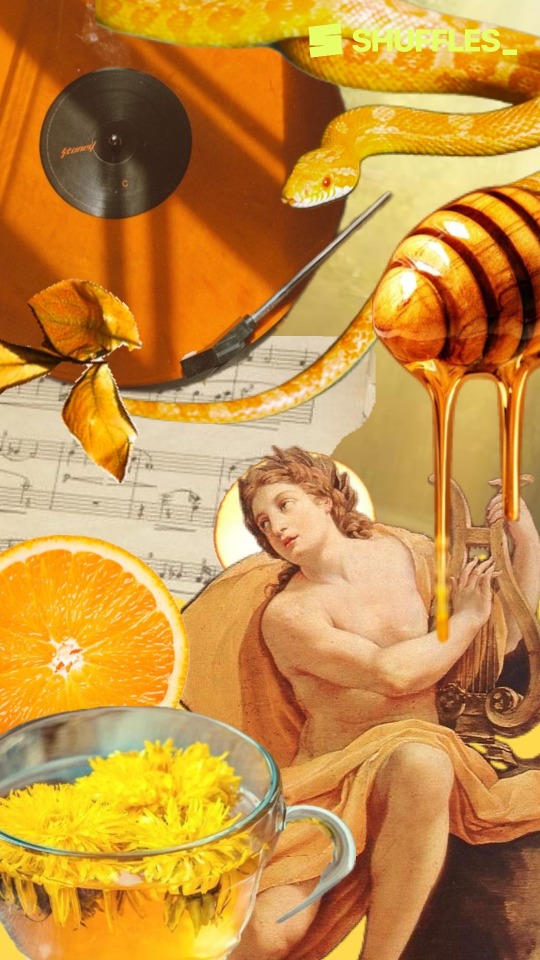
30 notes
·
View notes
Text
Tarot Card Associations for Hellenic Deities
Fool - Dionysus, Hermes, Pan, Ate, Gelos, Momus, Horme
Magician - Hephaestus, Hermes, Hecate, Aristeaus, Circe, the Muses, Apollo
High Priestess - Hecate, Persephone, Hera, Circe
Empress - Hera, Aphrodite, Demeter, Hestia, Gaia, Rhea
Emperor - Zeus, Hades, Poseidon, Ares
Hierophant - Demeter, Persephone, Hecate, Hestia, Hera, Gaia, Rhea
Lovers - Aphrodite, Eros, Dionysus, Adonis, Hera, Philotes
Chariot - Hermes, Charon, Iris, Morpheus
Strength - Athena, Ares, Heracles, Nike, Bia, Kratos,
Hermit - Hades, Hestia
Wheel of Fortune - Hermes, Tyche, the Fates, Zeus
Justice - Athena, Themis, Nemesis, Astraea, Apollo
Hanged Man - Hermes, Harpocrates, Prometheus, Psyche
Death - Hades, Thanatos, Dionysus, Charon, Persephone, Ares
Temperance - Athena, Demeter, Artemis, Harmonia
Devil - Dionysus, Pan, Comus, Ate, Priapus
Tower - Ares, Poseidon, Deimos, Phobos, Eris, Moros, Enyo, Hybris
Star - Aphrodite, Artemis, Astraea, Urania, Hermes, Eos, Hesperus
Moon - Selene, Artemis, Hecate, Nyx, Hypnos, Erebus
Sun - Apollo, Helios, Hemera, Hyperion
Judgment - Zeus, hades, Athena
World - Hermes, Demeter, Gaia, Hestia, Harmonia, Pan, Tyche
2K notes
·
View notes
Text
Offerings and their Removal
Disclosure, this may not apply to everyone! Cherry pick it if that works for you, or take none at all. Just no hate or arguments in the comments!
Definition- Offering - Something given to an entity or deity to show appreciation. This can also be something done or said to show appreciation.
~~~~~Types of Offerings~~~~~
Food- In ancient tradition, specifically Greek, the first bites of food were thrown into the fire to be sent through the gods by smoke. However, this isn't an option for many people these days. Alternative methods are favored.
Fire - The old methods are still applicable if available. If one has a bon fire or fire-place/hearth, the first bite of food can still be "smoked" , per-say.
Prayer - A small prayer can be said over food before the first bite is taken. Just a simple "Entity/spirit, please accept this offering, Blessed Be" or something similar can suffice. This, for some deities like Hestia can be done at the end too. This is more convenient for a hidden practice and for those who can't afford to waste food.
Altar- If you have an altar, or ever a small bowl, they can place the first bite of food there for the deity entity too.
Objects and Trinkets- Just like us, deities/entities love little trinkets. Whether it be a few coins you find nice to a statue or an engraved candle. Whatever it my be, it can be given to an entity with a prayer and/or on an altar in their honor.
Removables - There are some things that can be placed on altar and taken off. I like to call them removables. When placed on an altar, one could say "Entity/Deity, bless this object, with your energy and blessings." let it sit for a moment or cleanse with incense. If a clothing item, accessory, or perfume, you can take it off and use/wear it. Just remember to put it back to refresh the energy and discuss before taking it off for the first time.
Actions - There are also things that one can do in offer of a deity or entity. They can be small things, like prayers, to full-on rituals.
Prayer- This is probably the easiest in my opinion. It can be a small "Hey entity/deity, I appreciate you." on the go, or reciting a hymn or a prayer by the altar. It's incredibly diverse and can meld to any practice.
Chores - This can apply more to some deities than others, but just Keeping your room and house tidy can be done in honor of a deity. Altars specifically can be cleaned or re-arranged as an offering
Art-In ancient times, arts of every kind were offered to deities ant spirits. And it can fit most anyone's style.
Music- written specifically or just a song you think reminds you of them. Drawings/Paintings- try thing that reminds you of the deity or how you see them can be drawn or painted. Others- Pottery, Dance, Crocheting or handy crafts, or even more. All can be done in offering to a deity. Specifics - If you have done research into who you're offering to, you can offer specific things. Sleep for Hypnos, Baking bread for Hestia, Rehearsing if in the arts for Dionysus, etc. Self Care- This not a lot of people think applies, however the gas most want you to be kind to your self. whether it be a bath with oils, flower petals, and all the works to just brushing your teeth at night. All would make the gods/entities very proud of you!!
~~~~~Disposal~~~~~
This is something a bit more difficult; You did the thing, you think it's time, now what do you do? A decent chunk of this section was taken from @khaire-traveler. Obviously, actions cannot be "removed" Once the action is complete, the offering is sent.
Food- khaire narrowed it into 4 options that I really like. Just remember, when on an alter, don't let it sit too long for health concerns (rotting, bugs, etc.)
Consume - After praying aver the food like I had mentioned before.
Bum - Also mentioned before, but can be done after sitting at an altar for awhile.
Bury- Food offerings. if safe for local wildlife, can be buried. "My logic in burying them (only if environmentally safe) is returning the offering to the earth in a sense." (khair-3) (Yes its MLA cited, AP capstone has rotted my brain) If that fits Your practice, it is a good option.
Dispose, - This, like everything else here, must be done with respect. Clarify with the entity/deity that you aren't doing so out of disrespect, rather because this is your preferred disposal style or your only option
Objects/Art Pieces- If you have this ability, talk to your entity/deity about it, clarify there is no disrespect in the removal, and give the deity some time to de-attach to it. Slowly, the energy will fade from the object when kept away from the altar. This doesn't need to a ritual, but can be if that's what you prefer
Thank you for reading! This is my first fore into the pagan-sphere, so if this is something a lot of people like, I'll continue! Blessed Be, Alyssa the Witch!
2K notes
·
View notes
Text
Pharmakeia, Kirke, Divinity, and Mortality
One thing that I love and find intensely interesting about the goddess, nymph, and/or hero Kirke is the fact that she exists in a space between mortal and divine in every portrayal, but is almost never a demigoddess. So I wanted to address and unpack that a bit, because I haven't seen much on it and it deserves attention.
First, Kirke as a very mortal goddess--this is how I'd classify her portrayal in the Odyssey, where she is clearly divine, but described as very reminiscent of a mortal. This is the origin of one of her most famous epithets, "of mortal speech." This is generally viewed as a unique trait of Kirke.
Second, Kirke as a godly mortal. She was sometimes worshipped with hero cultus, with a sacred space of hers being described as a tomb, generally reserved for dead mortal heroes. I don't believe she was ever viewed as fully mortal, but she was at least mortal adjacent, which is significant in and of itself, even if a rarer portrayal.
Generally, pharmakeia (the sorcery she performed, based in herbs) was seen as at least partly a divine power, but also, not fully in the hands of the gods. The theoi do not need herbs and witchcraft to work their wills, but working one's will through herbs and witchcraft must be at least partly based in a non-mortal power.
Kirke, in my opinion, embodies this divide. As the pharmakis goddess of Aiaia, she uses a craft both mortal and divine. The working of herbs for power is not the way of a full god, but using the power of the herbs is not the typical way of a mortal.
For clarity's sake, I am aware I am somewhat echoing arguments against witchcraft and pharmakeia in Hellenic Polytheist spheres, so I'd like to say that I do not believe pharmakeia to be a hubristic practice. Pharmakeia, in the hands of a mortal pharmakis, controls no god. Gods may refuse their aid, spells may fail and be broken. And, actually, this is another aspect of Kirke's story I find so applicable to pharmakeia: Hermes and the herb 'moly.'
Moly is a herb given to Odysseus by Hermes to protect against Kirke's enchantments. The fact that her pharmakeia is resisted with one little plant, and that the plant is given to a hero by a god, is not an accident.
This is a clear example of how pharmakeia may be overpowered by the gods, and some crafty mortals. Hermes prevented the manifestation of her charms completely and utterly. From this it follows that, outside of stories, the theoi may prevent any witchcraft from succeeding without their consent, and most likely do not need the mythic moly to do it.
But Kirke, the mortal-like goddess and divine mortal, does not need the aid of any god but herself to work her magiks. The gods may stop her, but never control her. She is not under the theoi, and she is not divorced from mortals. She holds the powers, the qualities, and the craft of both.
158 notes
·
View notes
